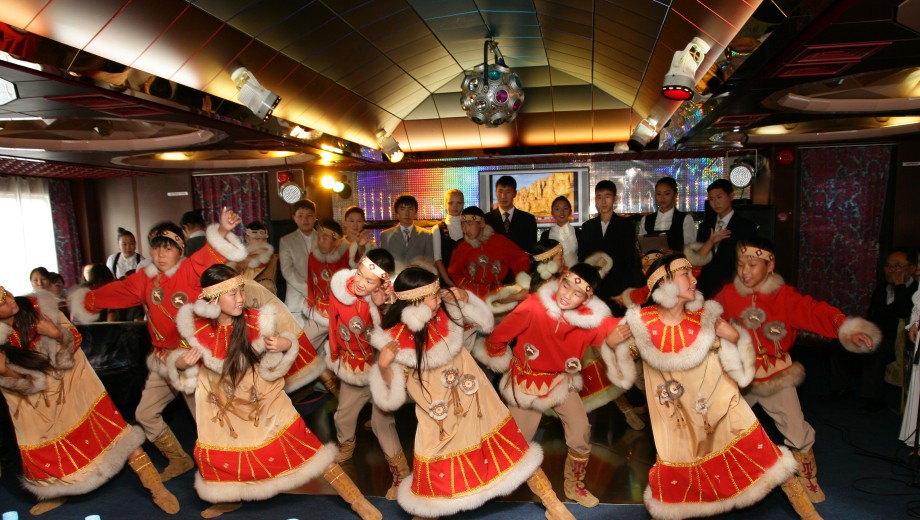The Republic of Sakha—in northeastern Russia, near the Arctic Circle—has one of the harshest climates in the inhabited world. Its capital, Yakutsk, built on continuous permafrost, gets colder than any major city on earth, with temperatures remaining well below freezing from November through March.
This inhospitable environment is home to a rich profusion of languages. There’s Russian, the national language, used in education and government. There’s Sakha, the regional official language. Suppressed during the Soviet period, it’s distantly related to Turkish. Then there are five, probably six, indigenous languages: Chukchi, Dolgan, Even, Evenki, and Yukaghir—recognized by authorities as one language, but actually two mutually unintelligible languages, according to linguists and the Yukaghir people themselves.
The future of these regional languages is uncertain, says Lenore Grenoble, the John Matthews Manly Distinguished Service Professor in Linguistics. After the Soviet period, people began speaking Sakha again—but now more and more young people are speaking Russian. “It seems the internet is killing the language,” Grenoble says. “Even in Sakha-dominant villages, children are watching YouTube content in Russian.”
The shift has come astonishingly quickly. At North-Eastern Federal University in Yakutsk, “my colleagues say that among fourth-year students, about 75 percent speak Sakha,” Grenoble says, “and among first-year students, they find only a handful.”
In 2018 Grenoble, along with associate professor of Linguistics Ming Xiang, was awarded more than $400,000 from the National Science Foundation (NSF) to study language contact between Russian, Sakha, and the minority languages in the region (except Dolgan, because its speakers are too scattered).
When languages come in contact, vocabulary or grammar can change, or converge into something new. For example, in Sakha, verbs come at the end of a sentence (as in Japanese). In Russian, the typical sentence order is subject-verb-object (as in English). “Sakha seems to be realigning along Russian word order,” Grenoble says, “and we anticipate a large number of structural changes to happen alongside that.”
With language contact also comes the threat of language shift—when people who speak a language gradually stop using it. It’s a common story when a more politically or economically powerful language comes in contact with a less powerful one.
While language shift is known to lead to language endangerment and loss, says Grenoble, “the transition from language contact, with sustained bi- or multilingualism, to language loss is not well understood.” The NSF-funded project combines traditional documentation methods with laboratory psycholinguistics—Xiang’s area of expertise—to better understand the social and cognitive factors that drive this shift.
Grenoble conducts her fieldwork by meeting with people who speak one or more of the languages of the region, interviewing them in depth and running linguistic experiments. All this is done over tea. “It takes time,” she says. “You can’t rush things in the North.” The most challenging aspect is interviewing speakers who are not fully fluent: “It’s really hard to get the weaker speakers to talk to us.”
For Xiang, whose lab-based research focuses on the cognitive mechanisms involved in language processing, language contact is a new research area. A few years ago, she began talking with Grenoble and Linguistics professor Alan C. L. Yu, who also works on language shift (see sidebar), about “joining forces to explore how language learning and processing affect language shift in the long term.”
Her role in the NSF project is to oversee the experiments, which involve language production and perception. “Compared to standard experimental work in the lab, experiments in the field face different challenges,” she says. Some languages have a small population of native speakers. Some communities have cultures very different from those in industrialized societies. “Part of our job is to adapt traditional laboratory methodologies to the particular situation of the local communities.”
Language shift is happening all over the world. The goal of the project is “to promote healthy language contact,” Grenoble says. “This is of enormous value to marginalized communities facing linguistic and, in turn, cultural loss.”
**
Other Sites of Language Contact
China, like the Sakha Republic, is linguistically diverse. Mandarin is the official language, but most Chinese speak a local variety as well, which can be very different from either Mandarin or Cantonese.
Linguistics professor Alan C. L. Yu’s research focuses on Hong Kong, where Cantonese is the dominant language. He’s particularly interested in immigrants who move there from parts of China where Cantonese is not spoken.
Yu’s work looks at “child-directed speech” among three groups: the local population, recent immigrants from mainland China, and the South Asian population (which has been in Hong Kong for generations). “How do children acquire language in the context of lots of variation?” he says. “How do they negotiate the variability in the input they’re receiving?”
Cantonese is a tonal language, using pitch to convey differences in meaning. Currently it’s undergoing “tone mergers,” Yu says: six different tones are reducing to three or four, depending on the speaker. When parents talk to their children, “Do they make the six-way distinction clearer, or do they produce the merged variety?” The answer could help understand how languages change, and if these changes are the result of contact.
Yu also studies Washo, an endangered Native American language spoken in California and Nevada. Washo is an isolate, meaning linguists haven’t figured out what languages it’s related to.
Yu’s research on Washo doesn’t focus on language contact, though it’s certainly an issue, he says. Most fluent speakers are elderly and have few opportunities to use it. Even at the senior center where they eat lunch once a week, for example, they often don’t speak their own language. “To accommodate the elders who don’t speak Washo,” Yu says, “they speak English.”—C. G.

